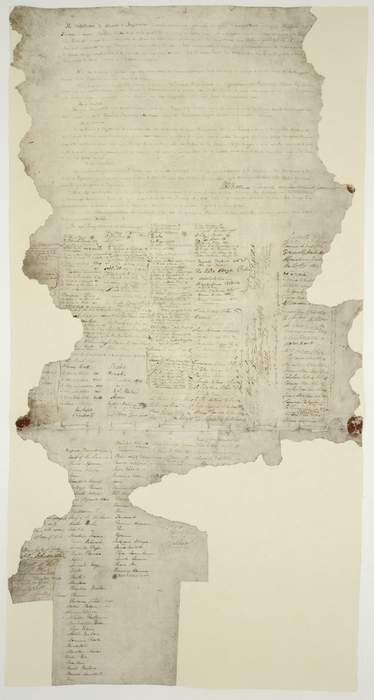Treaty of Waitangi
1840 agreement between the British Crown and Māori leaders in New Zealand
Treaty of Waitangi ▸ Facts ▸ Comments ▸ News ▸ Videos

The Treaty of Waitangi, sometimes referred to as Te Tiriti, is a document of central importance to the history of New Zealand, its constitution, and its national mythos. It has played a major role in the treatment of the Māori people in New Zealand by successive governments and the wider population, something that has been especially prominent from the late 20th century. The treaty document is an agreement, not a treaty as recognised in international law, and has no independent legal status, being legally effective only to the extent it is recognised in various statutes. It was first signed on 6 February 1840 by Captain William Hobson as consul for the British Crown and by Māori chiefs from the North Island of New Zealand. The treaty's quasi-legal status satisfies the demands of biculturalism in contemporary New Zealand society. In general terms, it is interpreted today as having established a partnership between equals in a way the Crown likely did not intend it to in 1840. Specifically, the treaty is seen, first, as entitling Māori to enjoyment of land and of natural resources and, if that right were ever breached, to restitution. Second, the treaty's quasi-legal status has clouded the question of whether Māori had ceded sovereignty to the Crown in 1840, and if so, whether such sovereignty remains intact.
| 0 shares | ShareTweetSavePostSend |
You Might Like
No news matches foundSorry, we were unable to find any results in our database for your queryFree news archive accessDid you know? You are eligible to search our news archive with millions of news references free of charge. To do this, please sign in first at the top of the screen. • Information about free access to our news archive Search this site and the web:  |
